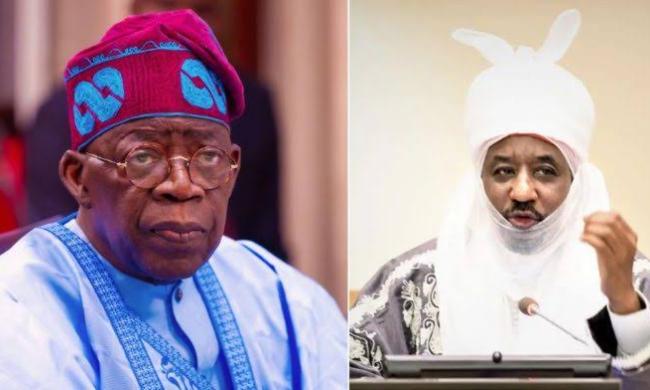
The Nigerian government, led by President Bola Tinubu, has responded to remarks by the Emir of Kano, Sanusi Lamido, stating that it does not require his endorsement for its economic policies. Sanusi, a former Governor of the Central Bank of Nigeria, recently declared that he would not assist the government in addressing the nation’s economic challenges.
Sanusi made the statement during the 21st anniversary of Fawehinmiism, held at the Lagos Airport Hotel in Ikeja, Lagos. According to him, his decision was influenced by what he described as the government’s failure to act as friends, despite their shared history. He also criticised the administration for lacking credible individuals capable of effectively communicating its policies.
In response, Minister of Information and National Orientation, Mohammed Idris, issued a statement on Thursday, acknowledging Sanusi’s right to express his views but expressing disappointment in his criticism of reforms he once supported. Idris remarked, “We don’t need Sanusi’s stamp of approval for the Federal Government’s laudable policies.”
The government called on Sanusi to prioritise the nation’s collective interests and contribute constructively instead of undermining critical reforms.
The statement read: “While we respect Emir Sanusi’s right to critique or commend government actions, it is concerning that a leader from an institution symbolising fairness and justice would admit to withholding truth due to personal grievances.
“Nigeria is at a critical juncture requiring bold reforms to address longstanding economic challenges. This administration has initiated transformative measures, not because they are easy, but because they are essential for Nigeria’s stability and growth—reforms that Emir Sanusi himself has consistently championed.”
The government highlighted that the current economic difficulties are a result of years of poor management, quoting Sanusi’s own acknowledgment of this fact.
“These reforms are already yielding results. The unification of exchange rates has boosted investor confidence, increased foreign reserves, and strengthened Nigeria’s resilience to external shocks. Removing the fuel subsidy has freed resources for investments in infrastructure, education, and healthcare. Reputable institutions, including the World Bank, project GDP growth, affirming Nigeria’s recovery trajectory,” the statement continued.
Additionally, the government noted that reducing the debt service-to-revenue ratio has created a sustainable fiscal framework, ensuring a better economic future.
In a pointed remark, the statement criticised Sanusi for allegedly allowing personal interests to cloud his judgment, stating, “It is disappointing that reforms widely endorsed by global experts, including Emir Sanusi himself, are now subtly criticised due to shifts in loyalty. His economic expertise places a responsibility on him to support these reforms constructively rather than undermine them out of estrangement from former allies.”
The government urged leaders to prioritise unity and the nation’s collective progress over divisive rhetoric, adding, “This administration is committed to inclusivity, sustainability, and shared prosperity. Collaboration, not distractions, is needed to rebuild Nigeria. We remain open to constructive dialogue with all stakeholders but will not be deterred from putting Nigerians’ interests first.”
Stay updated with more news by joining our Chronicles Reporters WhatsApp channel: https://whatsapp.com/channel/0029VabITrvEAKW7DSkTfP0J.